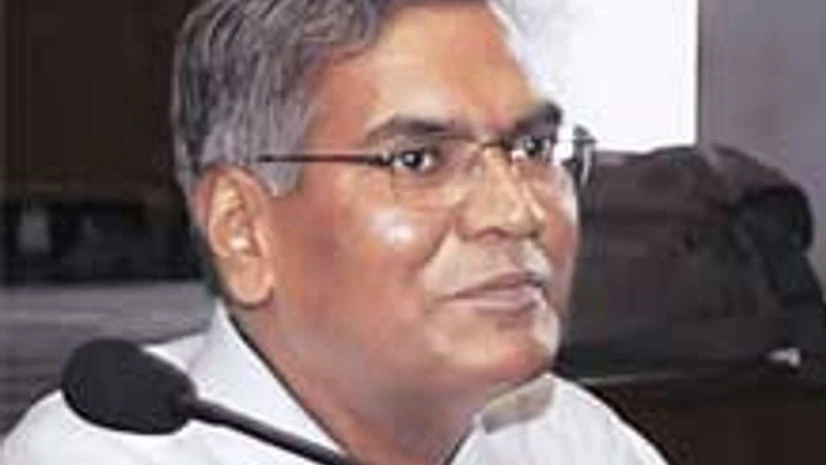Communist Party of India (CPI) leader D. Raja on Wednesday alleged that the Congress-led UPA II Government should be held responsible for the fall of the Indian rupee and the resultant economic crisis in the country, as it has failed to manage the Indian economy.
'The real issue is that they do not want to take any concrete measure to contain the continuous decline of Indian rupee, the continuous decline of economy in several sectors, in industrial sector there is decline, manufacturing sector there is decline, service sector there is decline and even in agricultural sector there is very deep crisis,' he told ANI here.
Raja said unemployment is growing, inflation is high, and the prices are high under the UPA rule.
More From This Section
'If at al, this government takes one step, that is to invite Foreign Direct Investments, that is to open up all our economies for Foreign Direct Investments, for international finance capital, for multinational corporations. And, despite their pleading before that international finance capital, that Foreign Direct Investments do not come to India,' he added.
The CPI leader further said Prime Minister Dr. Manmohan Singh and Finance Minister P. Chidambaram should assess why Foreign Direct Investments is not coming to India.
The rupee plunged to a new record low of 68.75 per dollar in the late morning trade on persistent dollar demand from banks and importers due to further fall in equity market amid rise in crude oil prices.
The SandP BSE benchmark Sensex plunges further by 473 points in the late morning trade on persistent selling pressure, triggered by sharp fall in the rupee value against the dollar coupled with sustained capital outflows by foreign funds.
Continuing its rising streak, gold prices climbed to cross Rs 34,500 per 10 gram level for the first time ever in futures trade today as rupee tumbled to hit an all-time low of Rs 68.75 amid a firming trend overseas.
The Finance Minister had earlier on Tuesday suggested a 10-point formula to revive the country's economic situation, and sought co-operation from all quarters despite ideological and political differences.
Chidambaram, who was replying to a discussion on the country's economic situation in the Lok Sabha, said the country needs more reforms, lesser restrictions and an open economy.
The Finance Minister said the fiscal deficit would be contained at 4.8 percent of the GDP even after doling out subsidies for the implementation of the Food Security Bill.
He said the government is doing everything to boost investment.
Chidambaram emphasized that no stone will be unturned to reap benefits of good monsoon.
'We should reap benefit of a good monsoon. Nothing must be done that would come in way of maximising agriculture production,' he said.
The Finance Minister also underlined the need to encourage manufacturing in sectors like power, steel, automobiles and textiles.
'We must increase production of electronics and textiles. We are importing things which we should not have imported. India can be strong only if we have a strong manufacturing economy,' he said.
Communist Party of India (CPI) leader Gurudas Dasgupta, who earlier initiated the discussion, said the nation is passing through economic crisis, and warned that the economic crisis of 1991 is not very far away if the government fails to take corrective measures to revive the economic growth.

)
